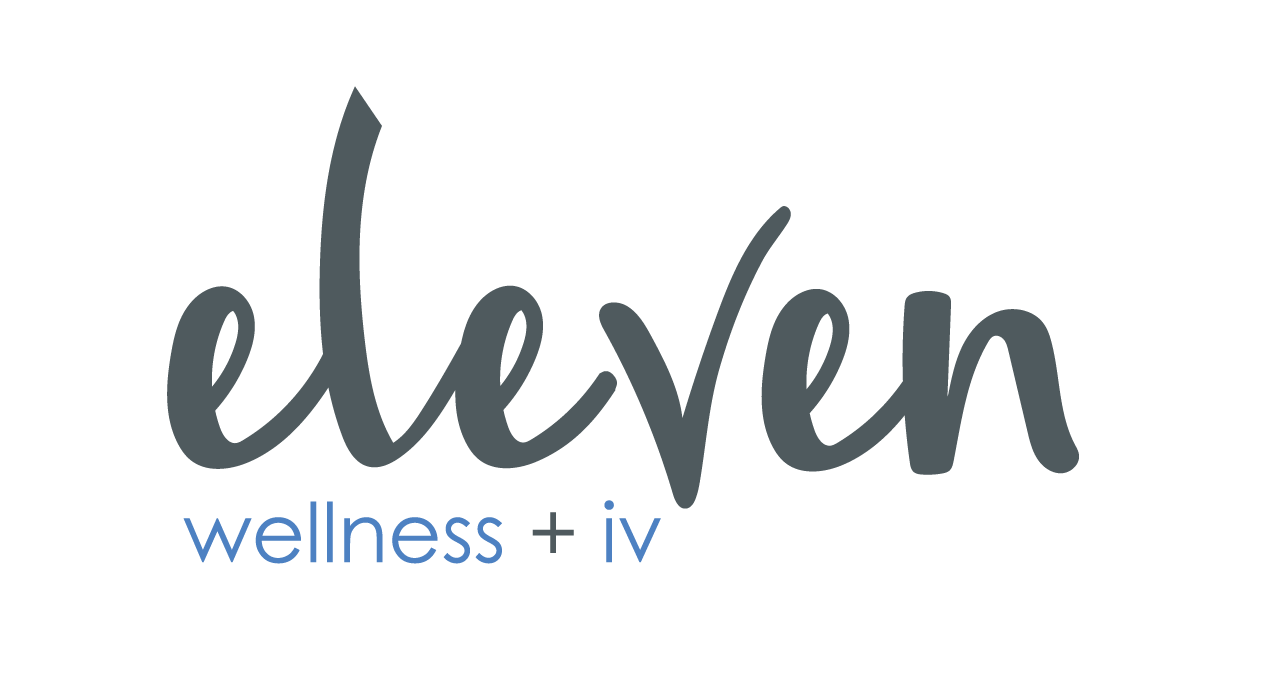Skin Cancer

Skin cancer does not discriminate and can show up at any age, so it is important to make sun protection part of your daily routine as early as possible. No matter the climate or season, sunscreen should be used daily. At Eleven Wellness, we have a variety of sunscreens to suit all different skin types and we would be happy to help you find the perfect one.
Our job as aestheticians is to educate our clients. One of the very first things we talk about with a new client is the importance of sunscreen in your daily skin care routine. It truly is the best anti-wrinkle cream you will ever wear. May is National Skin Cancer/Melanoma Awareness Month, so this is the perfect time to remind you of the importance sunscreen. It will not only keep your skin looking young, but it will also significantly lower your risk of getting skin cancer.
There are four main types of skin cancer:
- Basal cell carcinoma (BCC) – About 80% of skin cancers develop in our basal cells. It often develops on the head and neck, but can be found anywhere on the skin. This type of cancer grows slowly and rarely spreads to other parts of the body. BCC’s are mainly caused by sun exposure.
- Squamous cell carcinoma (SCC) – Around 20% of skin cancers develop in the skin’s squamous cells. It is mainly caused by sun exposure but can also develop on skin that has been burned, damaged by chemicals, or exposed to x-rays. SCC is commonly found on the lips; at sites of a long-standing scar; and on the skin outside the mouth, anus, and a woman’s vagina. About 2% to 5% of SCC’s spread to other parts of the body, which makes it more likely to spread than BCC.
- Melanoma – There are scattered cells called melanocytes where the epidermis meets the dermis. These cells produce the pigment melanin, which gives skin its color. Melanoma is the most serious type of skin cancer. Bad sunburns, particularly before the age of 18, are believed to be the leading cause of melanoma.
- Merkel cell cancer (MCC) – This is a highly aggressive, or fast-growing, rare cancer. It starts in hormone-producing cells just beneath the skin and in the hair follicles. It is usually found on the head and neck region. Merkel cell cancer may also be called neuroendocrine carcinoma of the skin. It is most common in people over the age of 50 with a history of sun exposure, and a weakened immune system.
- In the U.S., more than 9,500 people are diagnosed with skin cancer every day. More than two people die of this disease every hour.
- About 90% of nonmelanoma skin cancers are associated with exposure to ultraviolet (UV) radiation from the sun.
- Despite being at lower risk of getting skin cancer, skin cancer is most deadly for African Americans, Asians and Latinos.
- One in three Caucasians will be diagnosed with skin cancer in their lifetime; one bad burn in childhood doubles the risk factor for melanoma later in life.
- Any history of indoor tanning increases the risk of developing basal cell carcinoma before age 40 by 6%, and people who first use a tanning bed before age 35 increase their risk for melanoma by 75%.
- Men are diagnosed with skin cancer more often than women.
- Apply a broad-spectrum sunscreen of at least SPF 30 every single day, even on the cloudiest of days you are exposed to UV rays. “Broad Spectrum” means that it protects against the sun’s UVA and UVB rays. Apply liberally at least 15 minutes before going outside. Don’t neglect your neck, décolleté, and ears. We love products like Revision’s Intellishade, which can be used daily as part of a makeup routine, Elta MD UV Aero with its convenient spray that makes it easy to apply anywhere.
- Reapply often, especially if you are sweating or swimming. Colorescience’s Sunforgettable Brush is great for easy re-application throughout the day.
- Wear a wide brimmed hat, sun protective clothing, and sunglasses with total UV protection to protect your eyes.
- Stay in the shade as much as possible from 10 a.m. to 4 p.m.
- You are more likely to develop skin cancer from using tanning beds than develop lung cancer from smoking. Never use a tanning bed. Ever!
- Examine your skin from head to toe every month. If you see something new, changing, or unusual, have it checked by your dermatologist right away. This includes:
- A growth that increases in size and appears pearly, transparent, tan, brown, black, or multicolored;
- A mole, birthmark or brown spot that increases in size, thickness, changes color or texture, or is bigger than a pencil eraser;
- A spot or sore that continues to itch, hurt, crust, scab or bleed;
- Or an open sore that does not heal within three weeks.
- Regardless of whether you notice anything suspicious, once a year get your skin checked by a dermatologist.
We get a lot of questions about blocking natural Vitamin D production from the sun, but it only takes 10-15 minutes of unprotected sun exposure to get a good dose of Vitamin D.

